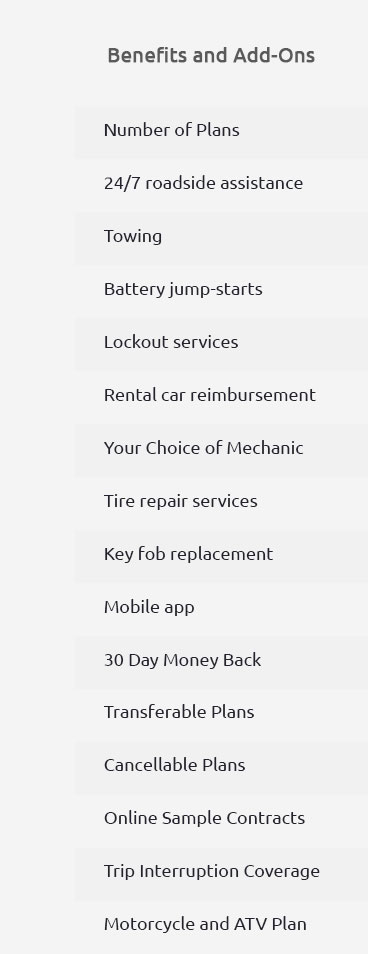 |
 |
 |
 |
 |
|||
 |
|||
 |
 |
 |
|
 |
|||
 |
|
 |
|
 |
|
 |
|
 |
|
 |
|
 |
|
 |
|

Is Car Warranty Necessary: A Comprehensive Coverage GuideWhen purchasing a vehicle in the United States, one of the most common questions is whether a car warranty is necessary. Understanding the importance of warranties can help you make an informed decision, providing peace of mind and potential cost savings in the long run. Understanding Car WarrantiesCar warranties are designed to cover the costs of specific repairs and maintenance after you purchase your vehicle. These warranties can vary in terms of duration, coverage, and cost. Let's explore the different types of warranties available to U.S. consumers. Manufacturer's WarrantyThe manufacturer's warranty typically comes with a new vehicle purchase. It covers defects and repairs for a set period or mileage, whichever comes first. This warranty ensures that any issues arising from manufacturing defects are addressed without additional cost. Extended Auto WarrantyAn extended auto warranty, also known as a service contract, extends the coverage beyond the manufacturer's warranty. It offers continued protection against unexpected repair costs. This type of warranty can be particularly beneficial for those who plan to keep their car for a long time.
For more information on protecting your investment, consider buying gap insurance to cover the difference if your car is totaled and the insurance payout is less than the amount owed. Benefits of Having a Car WarrantyHaving a car warranty offers several advantages:
Considerations for U.S. ConsumersWhile considering a car warranty, U.S. consumers should evaluate their driving habits, vehicle type, and how long they plan to keep the car. For example, if you're frequently traveling long distances, the added protection might be worth it. Additionally, exploring options like roadside assistance insurance can complement a car warranty by providing services like towing and battery jump-starts. FAQsWhat is covered under a standard car warranty?A standard car warranty typically covers the cost of repairs for defects in materials or workmanship, such as issues with the engine, transmission, and other major components. How long does an extended warranty last?The duration of an extended warranty varies but often extends coverage for several years or up to a specific mileage limit after the manufacturer's warranty expires. Is an extended warranty transferable?Many extended warranties are transferable, which can enhance the resale value of your vehicle if you decide to sell it before the warranty expires. Ultimately, deciding whether a car warranty is necessary depends on your specific needs and circumstances. By weighing the benefits and understanding the coverage options, you can make a choice that aligns with your financial goals and lifestyle. https://www.carchex.com/content/car-warranties-worth-it/
Once a new vehicle limited warranty expires after about three years, it could be difficult to pay for auto repairs, aftermarket parts, and labor ... https://www.quora.com/Is-it-necessary-to-purchase-an-extended-vehicle-warranty-when-buying-a-used-car
It's not necessary and many people advise against it. If you buy a used car and have some problem that's actually covered under an extended ... https://www.reddit.com/r/askcarsales/comments/15u0xag/are_extended_warranties_ever_worth_it/
Extended warranties are a revenue stream. So they are worth it in the same way that winning the lottery is a retirement plan.
|